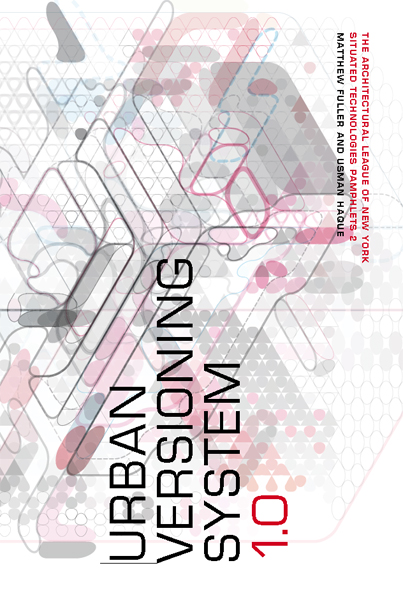
The Situated Technologies Pamphlets series explores the implications of ubiquitous computing for architecture and urbanism. How is our experience of the city and the choices we make in it affected by mobile communications, pervasive media, ambient informatics, and other “situated” technologies?
The second volume in the series asks the question: what lessons can architecture learn from software development, and more specifically, from the Free, Libre, and Open Source Software (FLOSS) movement? Written in the form of a quasi-license, Urban Versioning System 1.0 posits seven constraints that, if followed, will contribute to an open source urbanism that radically challenges the conventional ways in which cities are constructed.
Situated Technologies Pamphlets will be published in nine issues over three years and will be edited by a rotating list of leading researchers and practitioners from architecture, art, philosophy of technology, comparative media studies, performance studies, and engineering.
For more information, go to www.situatedtechnologies.net.
